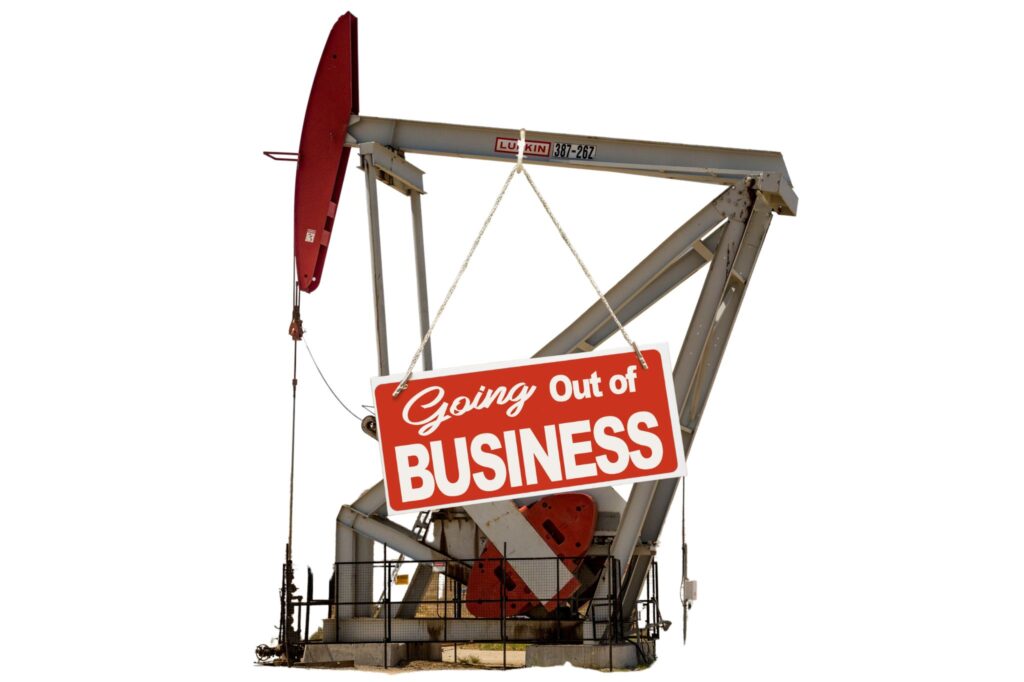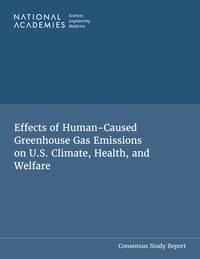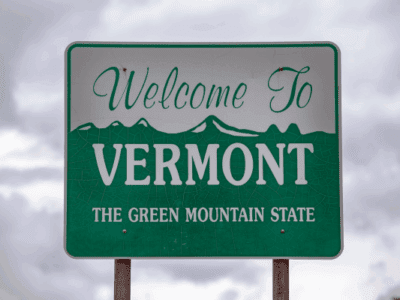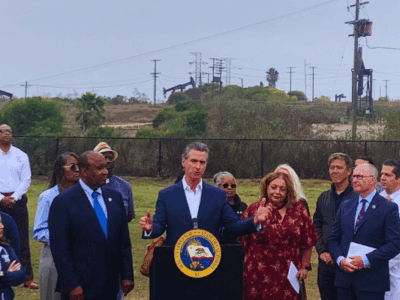New Bill Takes Up Local Oil Drilling Phase-Outs
Oil and gas interests want to weaponize new case law from the California Supreme Court. AB 3233 would clarify the scope of local authority over drilling operations.
When the California Supreme Court ruled last August that Monterey County could not enforce its voter-approved ban on new oil and gas wells, lawyers for Chevron said the company was “pleased” to end the 7 years of litigation. Monterey County is home to the eighth-largest oil field in California, so there was plenty at stake on the face of the case. But this legal battle was about much more than the San Ardo Oil Field; it was the latest in a line of coordinated legal efforts to sow confusion and doubt about the scope of local power to limit oil and gas drilling in cities and counties throughout California.
Hopefully, Assembly Bill (AB) 3233––a new bill introduced last Friday by Assemblymember Dawn Addis––can clarify the essential role of local governments in phasing out fossil fuel extraction here in California. AB 3233 would clarify that localities can limit or ban certain methods of oil and gas extraction, or even oil and gas operations as a whole. It would also require the State’s Oil and Gas Supervisor to minimize harm from oil and gas activities.

What happened in Chevron v. County of Monterey?
To understand AB 3233, we first need to understand what the California Supreme Court said (and didn’t say) in Chevron, U.S.A. v. County of Monterey (“Chevron v. Monterey”). Chevron v. Monterey considered a challenge to a Monterey County voter-enacted ordinance (“Measure Z”) that phased out land uses supporting: (1) wastewater disposal or impoundment, including techniques by which wastewater is pumped into injection wells to increase oil recovery; and (2) the drilling of new wells, including those needed to maintain operations at existing extraction sites. The Court held that both provisions were incompatible with state law, which gives CalGEM (the agency tasked with permitting oil and gas operations at the state level) discretion to approve “methods and practices” of oil and gas exploration and extraction on a case-by-case basis. The Court found that by removing the drilling of new wells and wastewater injection techniques from the menu of permitted oil and gas production activities in Monterey County, Measure Z regulated the “methods and practices” of production, in conflict with state law.
In reaching this conclusion, the Court necessarily relied on its characterization of Measure Z as regulating how operators conduct their operations, not where. While the Court conceded that the “ban on the drilling of all new wells, at first glance, appears to regulate where oil production can take place, i.e., nowhere in the County,” it nonetheless concluded that this provision was not merely an ordinary locational restriction because Measure Z’s provisions were defined so broadly as to capture any oil production method requiring the drilling of new wells, such as steam injection. Consequently, Measure Z effectively phased out these specific techniques at sites where extraction operations were already occurring and were allowed to continue under the ordinance. The Court also relied on Measure Z’s description of drilling new wells as “[r]isky [o]il [o]perations,” seemingly endorsing the appellate court’s view that Measure Z’s self-characterization as a locational land use measure was merely a pretext for regulating the conduct of oil and gas operators.
When it came to the question of more traditional land use ordinances that would prohibit operations altogether (either in designated zones or throughout a locality’s entire jurisdiction) while remaining agnostic as to operators’ “methods and practices,” the Court punted:
“Here, we do not decide, or express any opinion on, whether local entities may restrict or ban oil production within their boundaries based on proper zoning restrictions. As the Court of Appeal stated, ‘Our narrow holding does not in any respect call into question the well-recognized authority of local entities to regulate the location of oil drilling operations, a matter not addressed by section 3106 or Measure Z.’ [] ‘Nothing in this opinion should be construed to cast any doubt on the validity of local regulations requiring permits for oil drilling operations or restricting oil drilling operations to particular zoning districts’ because ‘[t]his case involves no such regulations.’” (Emphasis added).
This is not to say that the Court’s decision in Chevron v. Monterey County was good—or applied the law in a manner consistent with preemption doctrine in California (although, as one author of a 2022 amicus brief on behalf of local governments, I’m admittedly biased). But it did not wholeheartedly adopt the oil industry’s position that local governments cannot “fully prohibit all oil and gas operations within their borders without running afoul of the policies set forward by the State to encourage and promote oil and gas operations.”
Oil and gas interests have demanded that localities and courts adopt an expansive reading of Chevron v. Monterey.
In the months since the California Supreme Court issued its ruling, oil and gas companies have launched aggressive legal campaigns seeking to misapply Chevron v. Monterey’s language in a host of different ways, claiming that the decision prevents everything from permit conditions (see p. 782) to jurisdiction-wide phase-out measures. Before Chevron v. Monterey was even decided, oil and gas interests challenged a Ventura County ordinance creating buffer distances between oil and gas operations and schools, residences, and other sensitive uses under a similar theory of preemption. (Big Oil’s insistence that the issue of setbacks is a state-level decision is ironic in light of their shady tactics to delay statewide setback bills through the referendum process.).
There are plenty of reasons to believe that these challenges will not succeed if they make it to final judgment, but for the municipalities targeted by these litigation threats, that’s not the point. The specter of long, expensive litigation is a favored strategy for parties looking to chill the rightful exercise of local authority, and the oil industry has not been shy about weaponizing the Chevron v. Monterey decision––just like they have for everything from takings claims to state planning laws––to fight local regulations over oil and gas. But those local regulations are driven by local concerns, whether about environmental racism that has turned low-income communities of color into sacrifice zones, or about other issues like aesthetics, tourism, and agriculture, that are at the heart of municipal land use authority. The oil industry shouldn’t get to use Chevron v. Monterey as a cudgel to dissuade local governments from rightfully exercising this authority. Thankfully, Assemblymember Addis’ new bill seeks to directly address these aggressive legal strategies and reaffirm local control over oil and gas operations.
What will AB 3233 do?
AB 3233, introduced Friday, would go a long way in clarifying some of the uncertainty created by Chevron v. Monterey. Several of the bill’s provisions simply reflect the best reading of the current Public Resources Code. For instance, AB 3233 specifies that “a local entity may . . . prohibit oil and gas operations in its jurisdiction.” While the Court expressly didn’t rule on this question in Chevron v. Monterey, the authority to ban oil and gas operations within a locality runs deep in California, with courts affirming this power as far back as the 1950s.
But AB 3233 goes further than this. First, it specifies that local governments may adopt regulations prohibiting or limiting particular “methods and practices” of oil and gas operations. As I note above, the Court’s determination that Measure Z impermissibly regulated methods and practices of oil drilling was the crux of the decision: “Both [the Public Resources Code] and Measure Z address the same topic of how oil producers and well operators should be permitted to extract oil.” Based on its plain language, AB 3233 would provide a legislative fix for the Court’s convoluted “methods and practices”/location distinction.
Second, AB 3233 amends section 3011 of the Public Resources Code to clarify that the primary purpose of the statute is to preserve “California’s air, water, environment, and natural resources, and advancing the state’s climate goals.” The amendments would further specify that the Public Resources Code does not create any mandate to approve oil extraction, and in fact requires CalGEM to minimize harm from extraction activities. While it doesn’t feature prominently in the decision, Chevron v. Monterey uncritically adopted a contradictory finding that happened to be a key feature of the plaintiffs’ argument: that the Public Resources Code imposes on CalGEM a supposed “dual mandate” to (1) ensure that the state has adequate oil and gas resources, and (2) to protect the environment. Through these amendments, AB 3233 would not only clarify that no such “dual mandate” exists, but dispel arguments based on this language (including from former oil and gas administrators) that CalGEM is required to issue permits for oil extraction.
Hopefully, AB 3233 becomes law here in California. While fossil fuel phase-outs are supposedly a key statewide policy, much of the real work has been done at the local level. With statewide oil and gas efforts meeting disappointing headwinds, including the SB 1137 referendum and CARB’s refusal to support a statewide 2045 phase-out in the 2022 Scoping Plan (in line with Governor Newsom’s executive order), much of this work has fallen by necessity to local governments. AB 3233 will protect municipalities from frivolous industry lawsuits, allowing them to continue to lead the charge to meet the state’s climate goals.
Reader Comments
One Reply to “New Bill Takes Up Local Oil Drilling Phase-Outs”
Comments are closed.







This is such an important bill for local control. Thank you for highlighting it!